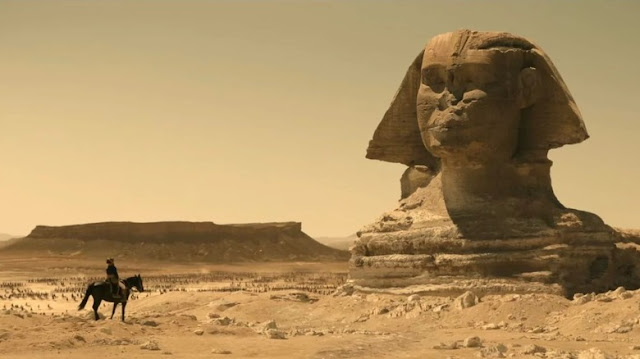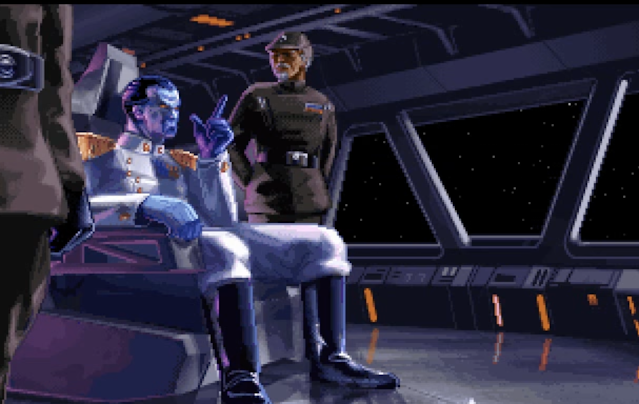Ridley Scott's historical epic is wildly weird, ribald, and absolutely breathtaking at times
Director Ridley Scott — 85 years old! — is known for his far-ranging career in sci-fi and historical epics: Alien, Blade Runner, Gladiator, The Martian, The Last Duel, House of Gucci.
Adding to his pantheon is Napoleon, which isn't a biopic in the traditional sense, isn't saccharinely grandiose and inspiring, and isn't necessarily all accurate. Does this take away from how enjoyable it is? Absolutely not.
Scott spares no expense in his grand set pieces occupying locations from the French Revolution to Egypt to Russia, and he sweeps thousands of soldiers (both real and CGI) across the plains of Europe like so many chessmen on a board. He's a master of his craft, and when I heard the first whispers that this movie was coming out, I knew I'd be there with (tri-color) bells on.
A brief detour to my love of all things French
Before we get started, I'd like to tell you a little about myself and my interest in the Little Corporal. (I found myself in the theatre wondering why every other person in the theatre was so interested in a three-hour movie about a 19th-century French general). I know why I was there, why is that grandma!?!
I have always been a history buff, and I have a degree in French literature. One thing about me—if there's a period piece set in Paris, I'm gonna see it. I've also been slowly reading the epic 900-page doorstop of a biography Napoleon: A Life by Andrew Roberts.
Our general wrote tens of thousands of letters during his life, and though I'm only 200-ish pages in, it became immediately apparent that this man was wild. More emotional than I ever imagined, brilliant, capable, and utterly obsessed with his empress, Josephine. He was, in a word, emo.
Ridley Scott has stated that he didn't have to read a book like this—that it was the poor scriptwriter's job to condense the life of one of the most famous men in history into a few short hours. The Napoleon that Scott chooses to bring to life is fascinating and weird, and the film itself has a wildly strange tone that I guarantee no one will see coming.
For this post, I'm going to structure my discussion in 5 exclamations/short phrases, along with the caveat that it's a movie worth seeing. It's just not that movie you may be expecting.
Horny
Napoleon is really two movies: The first, about a Corsican general's successes and failures on the battlefield. The other is a psycho-sexual drama between Napoleon and Josephine.
The relationship is ribald and coarse and full of machinations à la Dangerous Liaisons. The movie follows this schema literally, too—you'll see an epic battle, then it'll cut to Nap & Jo on a couch, having a weird and tense conversation about how she never writes. 4 years will pass, another battle, another couch, rinse and repeat. There are awkward, stilted love scenes, and it's never quite clear if Josephine actually likes her emperor, though she definitely plays his games. Unfortunately, they didn't include my favorite bit of Napoleon trivia: in a letter to her, he once said, "Will arrive in 3 days. Don't wash." Man was into some pheromones!
SO interesting
Despite the weird tone of this movie, it's nearly impossible to take your eyes off the screen. I found myself waiting nearly two hours to sneak away and use the bathroom because I didn't want to miss anything. The highlight of the film is the Battle of Austerlitz, in which Napoleon beats the Austrian army with surprise tactics and then uses artillery to chase them off the ice of the frozen lake.
The scenes where men and horses fall into the water are brilliant and artistic. There are things in Napoleon that I definitely have never seen before, and that's wild considering director Scott is nearing 90. There is also absolutely brutal gore that makes Saving Private Ryan seem like Hogan's Heroes.
Spectacular costumes
The women's dresses are equally as stunning; there's just (surprise) not as many women in the film. By the ending, Napoleon has switched to a khaki-colored overcoat that looks for all the world like the one Inspector Gadget wears. It works.
Empty, in a weird way, especially for a grandiose epic
Joaquin Phoenix was a strange choice for this role, and I'm not sure where he got his direction to play Napoleon like he does. One would assume Scott, but who knows? His portrayal is cold, weird, and surprisingly lacking in any sort of emotion. The real Napoleon suffered not from a Napoleon complex (he was actually of normal height) but from a Corsican complex: his family was Corsican, not French, and he didn't come from lofty riches. We get none of this in the movie, only his obsession with Josephine—which is definitely true, but this movie makes it seem nearly completely one-sided.
Also missing from this depiction of Napoleon is what made him a cult of personality. We see a brief glimpse of him charming his soldiers (including when he returns from exile), but that's about it. He doesn't seem like a leader, in the George Washington / Horatio Nelson / Alexander the Great type way.
Finally, I know a movie can only contain so much, but Napoleon speaks only to his success on the battlefield. In reality, he was also a keen civil organizer who introduced incredible public works, an entire civil code that would go on to influence law all across the globe, and wide-ranging and surprisingly liberal religious & educational reform.
Funnier than anyone will expect it to be
Most movies have moments of comic relief. Napoleon has yawning chasms of absurdity that crack open a scene, taking you out of the history and into a different place. I found myself laughing out loud at least a dozen times—sometimes I was the only one, though. There's one scene where he's rebuffed by the English foreign minister and Napoleon, in a fit of rage, screams something akin to "You think you're so great because you HAVE BOATS!!" It's true, the French navy was nothing compared to the ocean-ruling power of the English navy, but the way he spits out his frustration is nothing but funny.
On top of the strange one-liners ("Destiny has led me to this lamp chop"), Phoenix's performance is just so wildly weird that you can't help laugh every now and again. He's very serious, and he does a good job; you just have to wonder for the entire movie what he was trying to convey.
Lots have been said about how the film was trimmed down. Speaking for myself, I can't wait for the director's cut that will tip it into 4-hour territory.
POSTED BY: Haley Zapal, NoaF contributor and lawyer-turned-copywriter living in Atlanta, Georgia. A co-host of Hugo Award-winning podcast Hugo, Girl!, she posts on Instagram as @cestlahaley. She is an avid Francophile and once had to announce a moratorium on gifts featuring the Eiffel Tower or art featuring croissants because her family was going overboard.

























